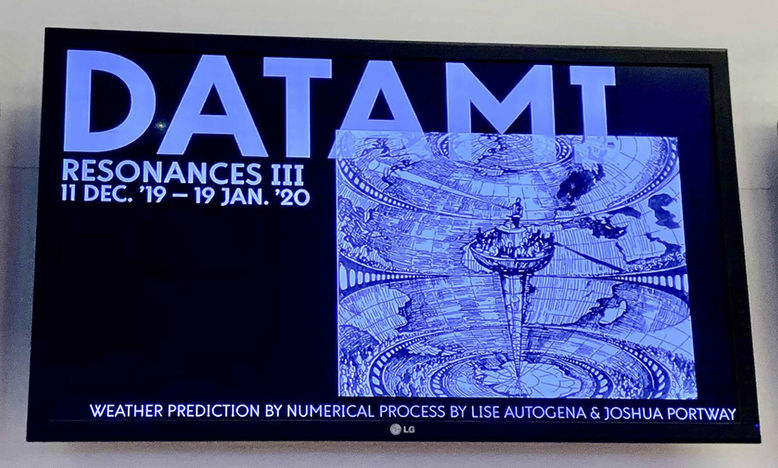
Lise Autogena
Weather Prediction by Numerical Process - A Forecast for Europe
2018-2020
Output: Other
Weather Prediction by Numerical Process - a Forecast for Europe is a performance and exhibition where the weather is forecast through human labour, thus turning the act of computation into a social, performative and collaborative action. The project highlighted the work of Lewis Fry Richardson, who laid the foundations for today's weather and climate modelling by manually calculating the first numerical weather forecast while a conscientious objector during the first world war. Working before the days of electronic computers, he had a utopian vision of creating a human computer consisting of thousands of "calculators" who would come together to calculate the weather for the good of humankind.
The project recontextualised this human powered computation in the context of today’s anxieties about climate change and social fragmentation. In collaboration with mathematicians and European Commission meteorologists the project translated Fry-Richardson’s original worksheets into a set of simple instructions; a step-by-step algorithm that enabled human ‘calculators’ to perform a weather forecast for Europe manually. The project was envisioned as the first in a series of investigations inspired by The European Commission's Crisis Room, entitled “Slow Crisis Room”; an attempt to bring the performative urgency of the crisis room to more slowly unfolding problems such as climate change and global inequality.
The project was commissioned as a collaboration with the European Commission’s Joint Research Center (JRC) and resulted in performances and exhibitions at JRC, Italy, Palais des Beaux-Arts (BOZAR), Brussels and Snowball (GLUON), Belgium, a highlighted presentation at the European Geosciences Union 2020 Conference and presentations at the European Centre for Medium-Range Weather Forecasts (ECMWF) and the European Commission.
Collaboration with Joshua Portway, Jutta Thielen-del Pozo (JRC) and Florian Pappenberger (ECMWF). Funded by European Centre for Medium Range Weather Forecasts, European Commission, Danish Arts Council and Sheffield Hallam University.
Research Output
The Science-Policy Interface
This project contains further videos that can accessed via the full case study below.
This collection of images displays the outputs from this project. Find out more details in the full case study below.
Research Method
The research focused on the performative and collaborative nature of the European Commission’s Crisis Rooms in Ispra and Brussels, and the complex public perception of ‘slow crisis’, such as climate change.
Key Methodologies:















